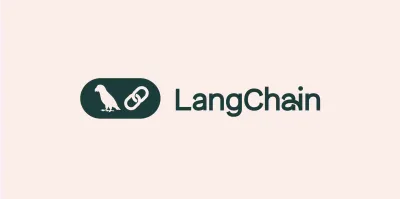RSS Co-Creator Tackles AI's Data Hunger with New Licensing Protocol
By: @devadigax

The man who helped shape how we consume online information is now tackling the challenge of how AI consumes it. Dave Winer, co-creator of RSS, has launched a new protocol called Real Simple Licensing (RSL) aimed at streamlining and scaling the licensing of training data for artificial intelligence models. The ambitious project seeks to address the thorny issue of data ownership and compensation in the rapidly expanding AI industry, a sector currently grappling with significant legal and ethical concerns surrounding data usage.
RSL’s core proposition is straightforward: provide a simple, scalable system for AI companies to legally and ethically license the vast amounts of data needed to train their increasingly sophisticated models. The current landscape is fragmented and complex. Many AI companies operate in a gray area, relying on scraped data or utilizing open-source datasets with unclear licensing terms. This approach not only exposes them to legal risks but also fuels concerns about bias and the exploitation of creators' work.
Winer envisions RSL as a decentralized, blockchain-based system that allows data owners to easily define and manage their licensing terms. This granular control contrasts sharply with the often opaque and cumbersome licensing arrangements currently prevalent. AI companies can then easily search, filter, and license data sets that meet their specific needs, all within a transparent and verifiable framework. The key element is the focus on ease of use and scalability. Winer recognizes that a complex system will only serve to impede adoption, hence the “Real Simple” in the name.
The system's simplicity extends to the payment mechanisms. Instead of complex negotiations and individual contracts, RSL aims to facilitate automated microtransactions, enabling AI companies to pay for data usage on a granular level. This could revolutionize the way AI companies access and utilize training data, moving away from the current reliance on free or poorly licensed datasets. This approach directly addresses the concerns of creators whose work forms the backbone of many AI models.
The implications of RSL are potentially far-reaching. Firstly, it offers a path toward fairer compensation for data creators, a critical aspect frequently overlooked in the current AI ecosystem. By enabling direct payment for data usage, RSL could incentivize the creation and sharing of high-quality datasets, ultimately benefiting the entire AI community.
Secondly, RSL could help mitigate the risks of bias in AI models. By providing a more transparent and ethical framework for data acquisition, the system aims to reduce the reliance on potentially biased datasets. Ensuring the diversity and representation within training data is crucial for building AI systems that are fair and equitable, something RSL aims to facilitate.
Thirdly, the project addresses the scalability challenges inherent in the rapidly evolving AI landscape. As AI models become increasingly complex and require larger datasets for training, a streamlined licensing system is crucial to avoid bottlenecks and ensure the continued development of AI technologies. The simplicity and automation of RSL are designed to address these scaling challenges.
However, RSL also faces significant hurdles. Wide-scale adoption will require the cooperation of numerous stakeholders, including AI companies, data creators, and legal professionals. The success of RSL hinges on its ability to convince AI companies to embrace a more ethical and transparent approach to data acquisition, a transition that could initially represent a substantial shift in operational practices.
Furthermore, the effectiveness of a blockchain-based system will depend on the robustness and security of its infrastructure. Addressing issues of scalability and security within the blockchain itself will be critical for the long-term viability of RSL. The system also needs to contend with existing legal frameworks and intellectual property rights, navigating the complexities of international regulations and data privacy laws.
Despite these challenges, Winer's new protocol represents a significant step towards addressing the fundamental ethical and practical issues surrounding AI data licensing. The ability to create a simple, scalable, and transparent system could reshape the AI landscape, fostering a more sustainable and equitable ecosystem for both AI companies and data creators alike. The success of RSL will depend on its ability to effectively navigate the complex legal and technical challenges, but its potential impact on the future of AI is undeniable.
RSL’s core proposition is straightforward: provide a simple, scalable system for AI companies to legally and ethically license the vast amounts of data needed to train their increasingly sophisticated models. The current landscape is fragmented and complex. Many AI companies operate in a gray area, relying on scraped data or utilizing open-source datasets with unclear licensing terms. This approach not only exposes them to legal risks but also fuels concerns about bias and the exploitation of creators' work.
Winer envisions RSL as a decentralized, blockchain-based system that allows data owners to easily define and manage their licensing terms. This granular control contrasts sharply with the often opaque and cumbersome licensing arrangements currently prevalent. AI companies can then easily search, filter, and license data sets that meet their specific needs, all within a transparent and verifiable framework. The key element is the focus on ease of use and scalability. Winer recognizes that a complex system will only serve to impede adoption, hence the “Real Simple” in the name.
The system's simplicity extends to the payment mechanisms. Instead of complex negotiations and individual contracts, RSL aims to facilitate automated microtransactions, enabling AI companies to pay for data usage on a granular level. This could revolutionize the way AI companies access and utilize training data, moving away from the current reliance on free or poorly licensed datasets. This approach directly addresses the concerns of creators whose work forms the backbone of many AI models.
The implications of RSL are potentially far-reaching. Firstly, it offers a path toward fairer compensation for data creators, a critical aspect frequently overlooked in the current AI ecosystem. By enabling direct payment for data usage, RSL could incentivize the creation and sharing of high-quality datasets, ultimately benefiting the entire AI community.
Secondly, RSL could help mitigate the risks of bias in AI models. By providing a more transparent and ethical framework for data acquisition, the system aims to reduce the reliance on potentially biased datasets. Ensuring the diversity and representation within training data is crucial for building AI systems that are fair and equitable, something RSL aims to facilitate.
Thirdly, the project addresses the scalability challenges inherent in the rapidly evolving AI landscape. As AI models become increasingly complex and require larger datasets for training, a streamlined licensing system is crucial to avoid bottlenecks and ensure the continued development of AI technologies. The simplicity and automation of RSL are designed to address these scaling challenges.
However, RSL also faces significant hurdles. Wide-scale adoption will require the cooperation of numerous stakeholders, including AI companies, data creators, and legal professionals. The success of RSL hinges on its ability to convince AI companies to embrace a more ethical and transparent approach to data acquisition, a transition that could initially represent a substantial shift in operational practices.
Furthermore, the effectiveness of a blockchain-based system will depend on the robustness and security of its infrastructure. Addressing issues of scalability and security within the blockchain itself will be critical for the long-term viability of RSL. The system also needs to contend with existing legal frameworks and intellectual property rights, navigating the complexities of international regulations and data privacy laws.
Despite these challenges, Winer's new protocol represents a significant step towards addressing the fundamental ethical and practical issues surrounding AI data licensing. The ability to create a simple, scalable, and transparent system could reshape the AI landscape, fostering a more sustainable and equitable ecosystem for both AI companies and data creators alike. The success of RSL will depend on its ability to effectively navigate the complex legal and technical challenges, but its potential impact on the future of AI is undeniable.
Comments
Related News

OpenAI Unveils ChatGPT Atlas: Your Browser Just Became Your Smartest AI Assistant
In a move poised to fundamentally reshape how we interact with the internet, OpenAI has officially launched ChatGPT Atlas, a gr...
@devadigax | 22 Oct 2025
In a move poised to fundamentally reshape how we interact with the internet, OpenAI has officially launched ChatGPT Atlas, a gr...
@devadigax | 22 Oct 2025

Netflix Doubles Down on Generative AI, Challenging Hollywood's Divide Over Creative Futures
In a move that underscores a growing chasm within the entertainment industry, streaming giant Netflix is reportedly going "all ...
@devadigax | 21 Oct 2025
In a move that underscores a growing chasm within the entertainment industry, streaming giant Netflix is reportedly going "all ...
@devadigax | 21 Oct 2025

AI Agent Pioneer LangChain Achieves Unicorn Status with $1.25 Billion Valuation
LangChain, the innovative open-source framework at the forefront of building AI agents, has officially joined the exclusive clu...
@devadigax | 21 Oct 2025
LangChain, the innovative open-source framework at the forefront of building AI agents, has officially joined the exclusive clu...
@devadigax | 21 Oct 2025

Meta Boots ChatGPT From WhatsApp: A Strategic Play for AI Dominance and Walled Gardens
In a significant move that reshapes the landscape of AI chatbot accessibility, OpenAI has officially confirmed that its popular...
@devadigax | 21 Oct 2025
In a significant move that reshapes the landscape of AI chatbot accessibility, OpenAI has officially confirmed that its popular...
@devadigax | 21 Oct 2025

Meta's New AI Peeks Into Your Camera Roll: The 'Shareworthy' Feature Raises Privacy Eyebrows
Meta, the parent company of Facebook, has rolled out a new, somewhat controversial artificial intelligence feature to its users...
@devadigax | 18 Oct 2025
Meta, the parent company of Facebook, has rolled out a new, somewhat controversial artificial intelligence feature to its users...
@devadigax | 18 Oct 2025
 AI Tool Buzz
AI Tool Buzz